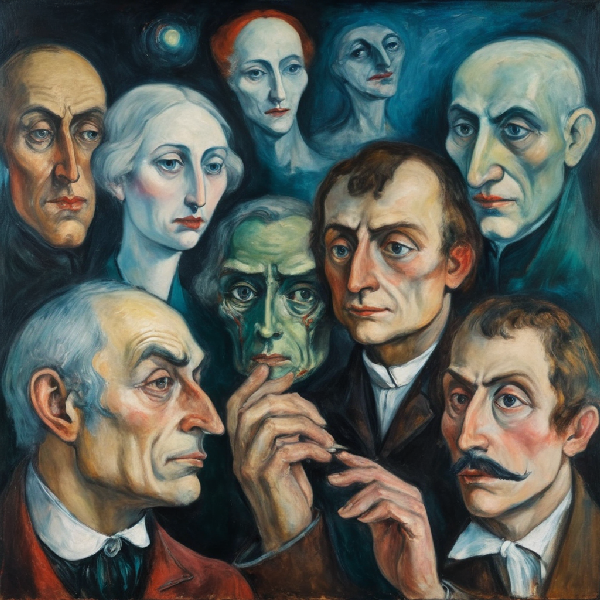Movie Script
For a comedy movie
AMSTERDAMPOLICE STATION; OPEN-PLAN OFFICE - DAY - INSIDE
The office is bustling with activity, but commissioner WILLEM FABER (mid-40s) turns listlessly on his chair. Small, ugly, almost a gnome, ears and eyes far too big, he doesn't fit in at all.
Faber is a man who has never quite made it. But also one who wouldn’t forgive himself if his big day never came.
He gazes gloomily at his colleague ROOS (around 30, tall, attractive), who is listening to another colleague, PIETER (around 30, also tall, athletic, likeable), boasting about his fishing successes with grand gestures. Pieter notices Faber's hostile stare.
PIETER
What about you, Faber? Do you fish?
FABER
Not anymore.
PIETER
A trout dragged you into the water?
While the office partly laughs and partly protests the bad joke, Faber stands up and slowly approaches his rival. The office falls silent. The little man suddenly exudes an unexpected aura of danger.
FABER
Back then, on the Mediterranean. That fish - that fish - so, you know what a catfish is, Pieter?
PIETER
A big fish.
FABER
Good. But do you know what an Aristotle's catfish is? - Well, this fish was a beast. One and a half meters. At least.
PIETER
Almost as long as you.
Muted laughter.
FABER
And of course, I was just a novice with a simple fishing rod. No nets, no harpoon, nothing. After all, I just wanted something small for the frying pan. And then I see this beast. This Monstrosity. Slimy, bearded head. The body covered in black spots, like plague boils. And before I know it, this beast grabs the bait and I have it on the hook. Literally on the hook. And so, this thing is hanging on my line and staring - I swear it's staring at me with those pitch-black eyes!
PIETER
And a year later, you two got married.
Big laughter.
FABER
Yeah, yeah, yeah... And I know that if I pull now, if I pull now, then I've lost. It’s gone. Forever. So I wait, stay calm. And we stare at each other. Just like that. For minutes. An eternity. Aristotle and I...
OTHER POLICEMAN
Mediterranean, huh?
FABER
Corsica. Two thousand and two.
OTHER POLICEMAN
Catfish is a freshwater fish, you goof!
While the whole office laughs, a door opens and Chief Inspector SANDERS (mid-50s) pokes his head through.
SANDERS
Faber!
FABER
Would have been a great story, though.
SANDERS
Faber! Would you have a minute, please.
We follow Faber into the...

POLICE CHIEF'S OFFICE - DAY - INSIDE
Faber sits, very small, with hunched shoulders, in the oversized chair opposite his boss. Sanders talks, but Faber's thoughts are elsewhere.
SANDERS
... Do you actually like it here, Faber?
FABER
Uh... Hm?
SANDERS
You see, at the moment... Let me start differently. The financial situation we're in right now - the police everywhere, it's not just us... And I'm not saying that our art theft department is in any way unimportant to us. It's actually very... Uh. But we need to be realistic here, too.
FABER
... Uh-huh?
Sanders has opened a file.
SANDERS
And when I look at this here. And this is not criticism of your work. Or of you personally. But: 1995 - three stolen impressionists. Unsolved. '97 - the Stedelijk case: Unsolved. '99 - the two Vermeers.
FABER
The Vermeers resurfaced.
SANDERS
After Scotland Yard got involved.
FABER
The leads came from me. - Us.
SANDERS
2001 - this "Viktor van Doom" story. Unsolved. 2004 - two Mirots, both destroyed, Roberto Matta, destroyed, 2005, some Ritschl?, missing, 2006, then... well, it goes on like that.
FABER
(during Sander's enumeration)
If I... may I... With such art works... sometimes it takes years to--
SANDERS
Faber.
FABER
And you must also consider...
SANDERS
Faber!
Faber falls silent.
SANDERS
I just want to say, Faber. Even if... I know, my predecessor hired you, but: you are - of course - one of us. And we want it to stay that way. -- But if this matter in Rotterdam, if that remains unresolved as well - that would be - well - not so good.
AMSTERDAMPOLICE STATION; OPEN-PLAN OFFICE - DAY - INSIDE
Faber, angrily, pale as a sheet, makes his way through the suddenly much too crowded office, grabs his coat and bag and heads for the exit. His coat gets caught on one of the tables. Papers fall to the ground.
PIETER
What will you catch today, Faber? Plato plankton?
Faber leaves the room.
ROOS
That guy…








